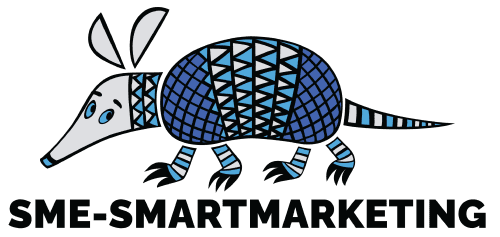There’s something wrong with this question isn’t there? Asked in this way, the emphasis is on what’s best for the sender. What we should really be asking is, “What time would someone like...

Mastering Marketing Strategies For Business Success
Proven Techniques, Tools, And Trends to Strengthen Your Brand and Drive Growth
Should you use AI to create your marketing campaigns? Yes. And no.
Recent research conducted among marketing executives and business owners suggests that around 50% of them use artificial intelligence to help them with a limited but growing number of routine...
Avoid buyers remorse: Help your customers make sensible choices
Buyer's remorse is a common but deeply unsettling feeling that many customers experience after making a purchase. It's that nagging sense of regret, doubt, or anxiety that can creep in a few hours...
The danger of blindly chasing metrics
Clicks, likes, shares, and engagement rates have become the holy grail of online marketing. They certainly play a role in tracking your campaigns, but it's crucial to remember they’re just one part...
Marketing is the backbone of any successful business. It’s the process of connecting products or services with the right audience to build relationships, enhance brand reputation, and drive sales. By leveraging effective marketing strategies, businesses can create lasting impressions, foster trust, and stay ahead in competitive markets.
The Foundations Of Marketing
Understanding the basics of marketing is the first step toward creating impactful strategies. From its definition to its evolution, these elements set the stage for effective campaigns.
What Is Marketing?
Marketing is the process of promoting and selling products or services by understanding and addressing customer needs. At its core, it involves identifying target audiences, delivering value, and building meaningful relationships. Effective marketing combines creativity, strategy, and data to connect businesses with their audience in ways that resonate. Key components include researching market trends, creating engaging messaging, and offering solutions that align with consumer expectations.
The Evolution Of Marketing
Marketing has shifted dramatically over the years. Traditional methods like print ads, direct mail, and television dominated for decades. However, the rise of the internet introduced digital platforms that transformed how businesses interact with consumers.
Technology now plays a central role, with data analytics guiding decisions and artificial intelligence enabling personalised campaigns. Modern marketing integrates traditional and digital techniques to reach audiences through multiple touchpoints, creating a cohesive and impactful experience.
Why Marketing Is Vital For Business Growth
Marketing drives business success by building brand recognition, fostering customer loyalty, and increasing revenue. A well-executed marketing strategy creates a strong brand identity, helping businesses stand out in saturated markets. Beyond visibility, marketing generates engagement by connecting with audiences on an emotional level, turning potential customers into loyal advocates. It also enables businesses to measure success through metrics like conversion rates, ROI, and customer retention, ensuring long-term growth and sustainability.
Key Marketing Strategies
Tailored strategies help businesses reach specific goals, from boosting visibility to driving conversions. Adapting these strategies ensures they remain effective in diverse industries.
Content Marketing
Content marketing focuses on creating valuable, relevant material to engage and inform target audiences. It positions businesses as thought leaders, builds trust, and encourages customer loyalty. Examples include blog posts, how-to videos, eBooks, and infographics. Consistent, high-quality content not only attracts attention but also establishes authority, encouraging audiences to take action.
Social Media Marketing
Social media platforms like Facebook, Instagram, and LinkedIn offer direct communication with customers. Effective social media marketing combines compelling visuals, engaging captions, and strategic posting to build relationships.
Consistent branding across platforms ensures recognition, while interactive elements like polls or live videos boost engagement. Social media also allows businesses to tap into user-generated content, fostering a sense of community.
Search Engine Optimisation (SEO)
SEO enhances a website’s visibility by improving its ranking in search engine results. This involves optimising keywords, producing high-quality content, and ensuring technical functionality, such as mobile-friendliness and fast loading speeds. Effective SEO drives organic traffic, ensuring potential customers discover your business naturally without paid ads.
Pay-Per-Click (PPC) Advertising
PPC campaigns offer immediate visibility through targeted ads on platforms like Google Ads or social media. By focusing on specific keywords or demographics, businesses can reach potential customers directly. Success in PPC depends on well-crafted ad designs, strategic bidding, and analysing performance data to refine campaigns and maximise return on investment.
Email Marketing
Email marketing remains one of the most effective ways to nurture relationships with customers. Personalised email campaigns, segmented by audience preferences, deliver tailored content that resonates. Clear calls-to-action (CTAs), attractive designs, and valuable offers make email campaigns a powerful tool for customer retention and conversion.
Tools and Technologies for Modern Marketing
In today’s fast-paced environment, marketing tools streamline processes, enhance creativity, and improve decision-making.
Analytics Tools
Analytics platforms like Google Analytics and SEMrush provide insights into campaign performance. These tools track metrics such as website traffic, audience behaviour, and conversion rates. By leveraging data, businesses can make informed adjustments to optimise their strategies and achieve better outcomes.
Automation Tools
Automation platforms like HubSpot and Mailchimp simplify repetitive tasks, such as sending emails or managing leads. These tools free up time for marketers to focus on strategy while ensuring efficiency in campaign execution. Automation also enhances consistency, maintaining customer engagement across multiple channels.
Social Media Management Tools
Platforms like Hootsuite and Buffer help businesses manage their social media presence effectively. These tools enable content scheduling, performance tracking, and streamlined engagement with followers. By centralising social media activities, businesses can maintain a cohesive strategy while saving time.
Trends Shaping The Future Of Marketing
The marketing landscape evolves continuously, driven by technology and shifting consumer expectations.
Personalisation And AI
Personalisation has become a cornerstone of effective marketing. Artificial intelligence enables businesses to analyse customer data and deliver tailored experiences, from product recommendations to chatbot interactions. AI-driven insights help brands anticipate customer needs, fostering stronger connections and higher satisfaction rates.
Video And Interactive Content
Short-form video and interactive content are gaining traction, especially on platforms like TikTok, Instagram Reels, and YouTube. These formats captivate audiences with dynamic, engaging storytelling. Interactive content, such as quizzes or augmented reality experiences, encourages active participation, creating memorable interactions that drive brand loyalty.
Sustainability And Social Responsibility
Consumers increasingly expect businesses to align with social and environmental values. Purpose-driven marketing emphasises transparency and ethical practices, resonating with audiences who prioritise sustainability. By demonstrating genuine commitment to these values, businesses can build trust and strengthen brand loyalty.
Common Marketing Mistakes To Avoid
Avoiding common pitfalls ensures your marketing efforts remain effective and credible.
Lack Of Audience Understanding
Failing to define target demographics results in ineffective campaigns. Researching your audience’s needs, preferences, and behaviours is essential for creating tailored messages that resonate. Without this foundation, marketing efforts risk being too generic, missing the mark entirely.
Ignoring Analytics
Neglecting data insights leads to missed opportunities for improvement. Analytics provide valuable feedback on campaign performance, helping businesses identify strengths and weaknesses. Regularly reviewing metrics ensures strategies stay relevant and results-driven.
Over-Promotion
Overly sales-focused messaging can alienate customers. Striking a balance between promotional content and educational or entertaining material fosters trust and engagement. By offering value rather than pushing products, businesses can build lasting relationships with their audience.
Building A Marketing Plan
A well-structured marketing plan is essential for achieving goals efficiently.
Setting Goals
Defining clear, measurable objectives ensures campaigns are purposeful. Using SMART (Specific, Measurable, Achievable, Relevant, Time-bound) criteria helps businesses set realistic goals that align with overall business strategies.
Budget Allocation
Allocating resources strategically maximises impact. Businesses must balance investment between digital and traditional channels, ensuring a comprehensive approach. Prioritising high-performing strategies while exploring new opportunities ensures efficient use of funds.
Measuring Success
Tracking key performance indicators (KPIs) provides a clear picture of campaign effectiveness. Metrics like conversion rates, return on investment (ROI), and audience engagement help refine strategies and demonstrate the value of marketing efforts.
Frequently Asked Questions
What Is Marketing, And Why Is It Important?
Marketing connects businesses with their target audience, builds brand identity, and drives revenue by promoting products or services effectively.
How Do I Choose The Right Marketing Strategy For My Business?
Consider your target audience, goals, and budget. Tailored strategies like content marketing or social media campaigns often yield the best results.
What Is The Difference Between Traditional And Digital Marketing?
Traditional marketing includes offline methods like print ads, while digital marketing uses online platforms such as websites and social media to reach audiences.
How Does SEO Improve My Business’s Visibility?
SEO enhances website rankings on search engines by optimising content and technical factors, making it easier for customers to find your business online.
Why Is Content Marketing Effective?
Content marketing provides value to your audience through informative and engaging material, building trust and encouraging customer loyalty.
What Tools Can Help Me Manage My Marketing Efforts?
Tools like Google Analytics, Mailchimp, and Hootsuite streamline tasks, track performance, and improve efficiency in executing campaigns.
How Do I Measure The Success Of A Marketing Campaign?
Success is measured using KPIs like conversion rates, ROI, website traffic, and audience engagement.
What Role Does Social Media Play In Marketing?
Social media connects businesses with audiences, builds brand awareness, and fosters engagement through interactive and visual content.
How Can I Avoid Over-Promoting My Products?
Focus on providing value through educational, entertaining, or inspiring content. Balance promotional material with content that builds trust.
Why Is Personalisation Important In Modern Marketing?
Personalised experiences show customers that a brand understands their needs, increasing satisfaction, loyalty, and conversions.




